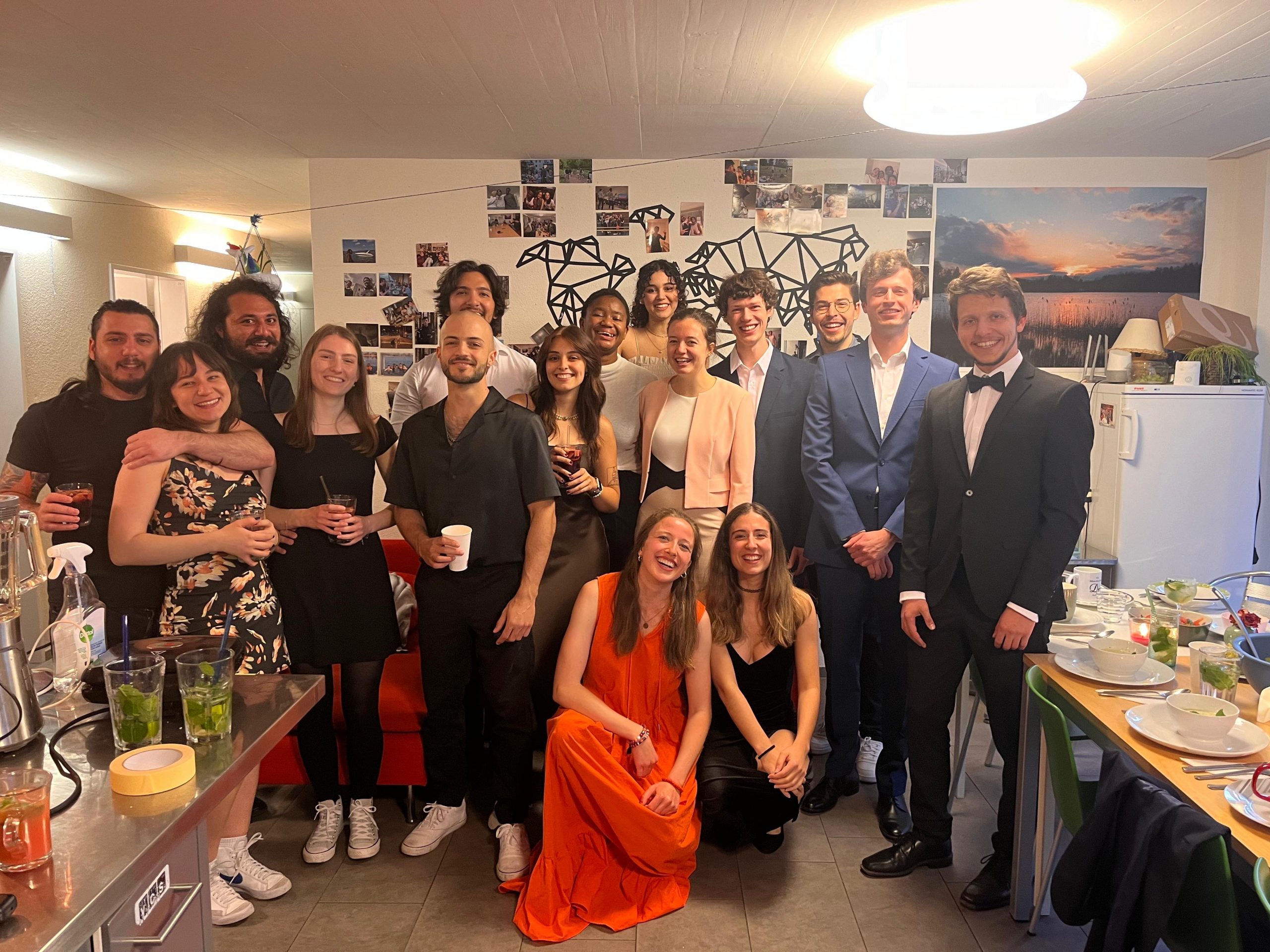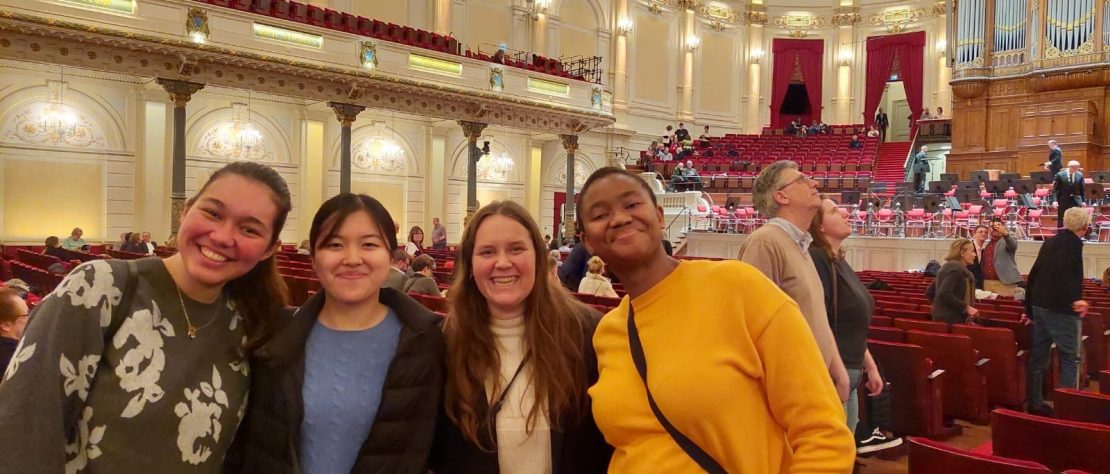Nthatisi Mota
M. Economics
Semester Exchange in the First Semester, 2024 at the University of Zurich
Pre-departure:
Embarking on a semester exchange at the University of Zurich (UZH) in Switzerland was an experience of a lifetime. As a master’s student in Economics from Stellenbosch University, this exchange provided me with an invaluable opportunity to expand my academic horizons immerse myself in Switzerland’s rich culture and travel across Europe. From attending world-class lectures to exploring the picturesque Swiss landscapes and attending the Montreux Jazz Festival (a bucket list event of mine), every moment of my exchange was a journey of discovery, learning, and personal growth.
The pre-departure process for UZH was remarkably smooth, thanks to the comprehensive guidance provided by UZH. From sorting out visa applications to securing accommodation, UZH’s exchange office was prompt and responsive to every query I had. They ensured that I was well-prepared before leaving South Africa, sending reminder emails for any outstanding documents, and providing detailed information about what to expect upon arrival.
Selecting modules was another crucial part of the pre-departure phase. UZH assigns a faculty mentor to each exchange student, and my mentor was instrumental in helping me navigate the different course options, and student life more broadly. There is also a popular app called Matricula, where students share their experiences and advice about various modules, which is incredibly helpful. Importantly, UZH offers flexibility in changing modules even after you arrive, which provided a sense of security knowing I had options once I settled in. The modules I took included: Big Data Methods for Econometrics, Gender Economics, Introduction to the Philosophy of Economics, Econometrics for Policy Analysts and Social Choice Theory. All were incredibly fulfilling and encouraged me to challenge myself.
Experience at the Host University:
Once in Switzerland, UZH’s exchange office continued to provide support, hosting welcoming events that made the transition smoother. Additionally, the Erasmus Student Network (ESN) played a significant role in fostering a sense of community, organizing events and city tours where I met some of my closest friends during the exchange.
UZH is truly a world-class institution, and this was evident from the moment I stepped onto the campus. The state-of-the-art facilities, coupled with the caliber of lectures and course content, initially felt intimidating. Coming from Stellenbosch, where my master’s class had around 30 students, the large class sizes at UZH were overwhelming at first. However, I soon realized that Stellenbosch had more than adequately prepared me academically for my exchange. It was affirmed that UZH was not only a place where I would survive, but I could also thrive.
One of the biggest challenges was adapting to a different educational system, particularly the grading scale, which operates on a 6-point system instead of percentages. My advice to future exchange students is to make an effort to connect with your classmates. Despite the Swiss reputation for being reserved, I found that everyone I approached was warm and welcoming. Contrary to what I had been told, most of my friends ended up being full-time UZH students rather than fellow exchange students.
Living with international students who were full-time at UZH also greatly enriched my experience. My flatmates quickly became like family, and together, we shared countless dinners, game nights, and even a memorable trip to a cabin in the Swiss mountains, where we hiked in the snow and bonded over home-cooked meals. Their openness and willingness to help me navigate my new environment made a world of difference. I lived in the housing suggested by UZH, the WOKO housing.

It’s no secret that Switzerland is an expensive country, and this was something I had to manage carefully during my exchange. I was fortunate to receive the Henning Roelli Scholarship, which provided me with 4,000 Swiss Francs, a significant contribution towards my expenses. To access my scholarship, I had to open a Swiss Bank account. I did with UBS. The process was incredibly easy. However, there are a range of options available to students, with most banks offering student benefits.
The major costs I encountered included accommodation and travel. To make the most of my time in Switzerland and beyond, I invested in several travel passes that were invaluable. These included the GA Night Fare Card (which made travel between 7 PM and 7 AM free), the Half-Fare Card (which gave me a 50% discount on most travel outside Zurich), and the Zone 110 Card (covering all travel within Zurich). Although these cards required a steep initial investment, especially as someone under 25 who qualified for discounted rates, they were worth every franc.
During my exchange, I took the opportunity to travel to several countries outside of Switzerland, including Sweden, the Netherlands, Finland, Spain, and France. To manage costs effectively, I tried to adopt a strategic approach to travel. One of my key cost-cutting strategies was to stay with friends or family whenever possible, which significantly reduced my accommodation expenses. This not only allowed me to save money but also gave me the chance to reconnect with old friends and build new friendships. Additionally, I made it a point to book my flights or train tickets well in advance, ensuring I could take advantage of lower fares.
Return to Stellenbosch:
As I write this blog, I’m on a flight back home, reflecting on the incredible journey I’ve just experienced. Although I haven’t yet had the chance to settle back into life in South Africa, I’m filled with excitement and anticipation. I’m eager to reunite with my family and friends, share stories of my adventures, and, of course, indulge in some much-missed biltong. While I know it will take some time to fully adjust back to my routines, I’m looking forward to bringing all the knowledge and experiences I gained in Zurich into my remaining SU journey.

